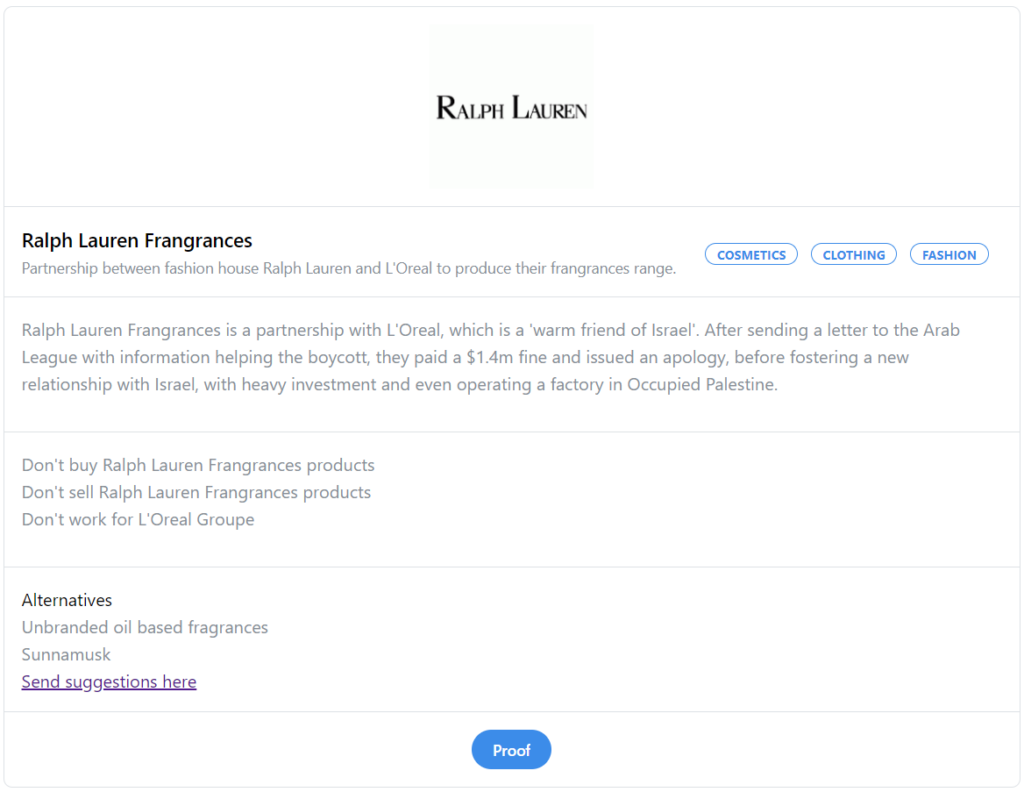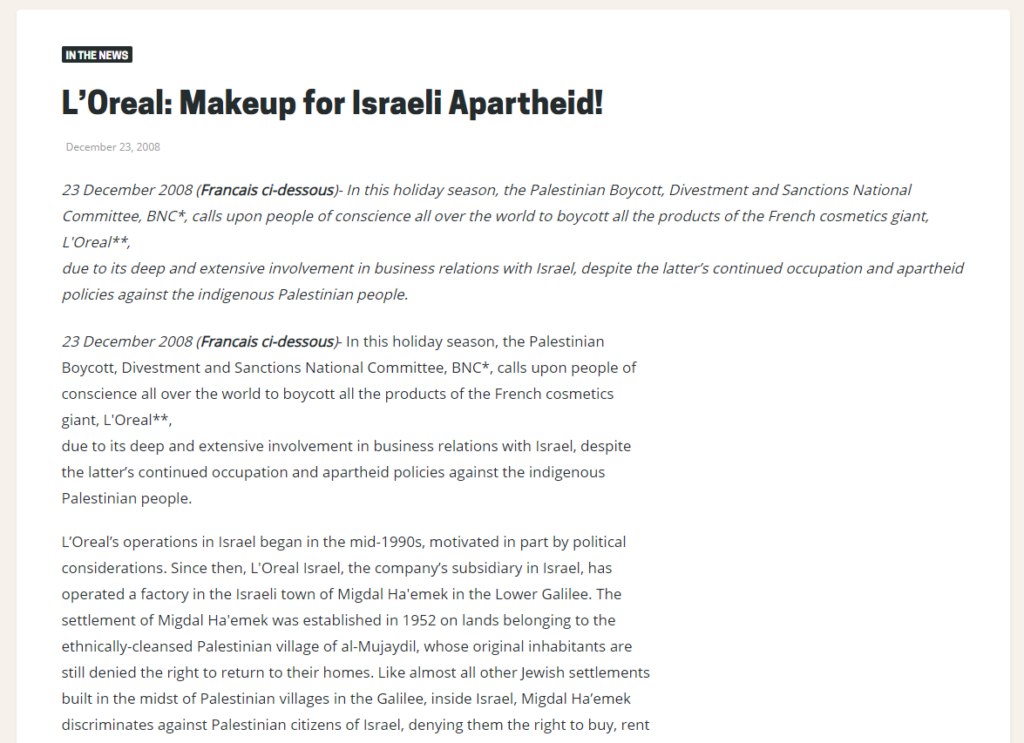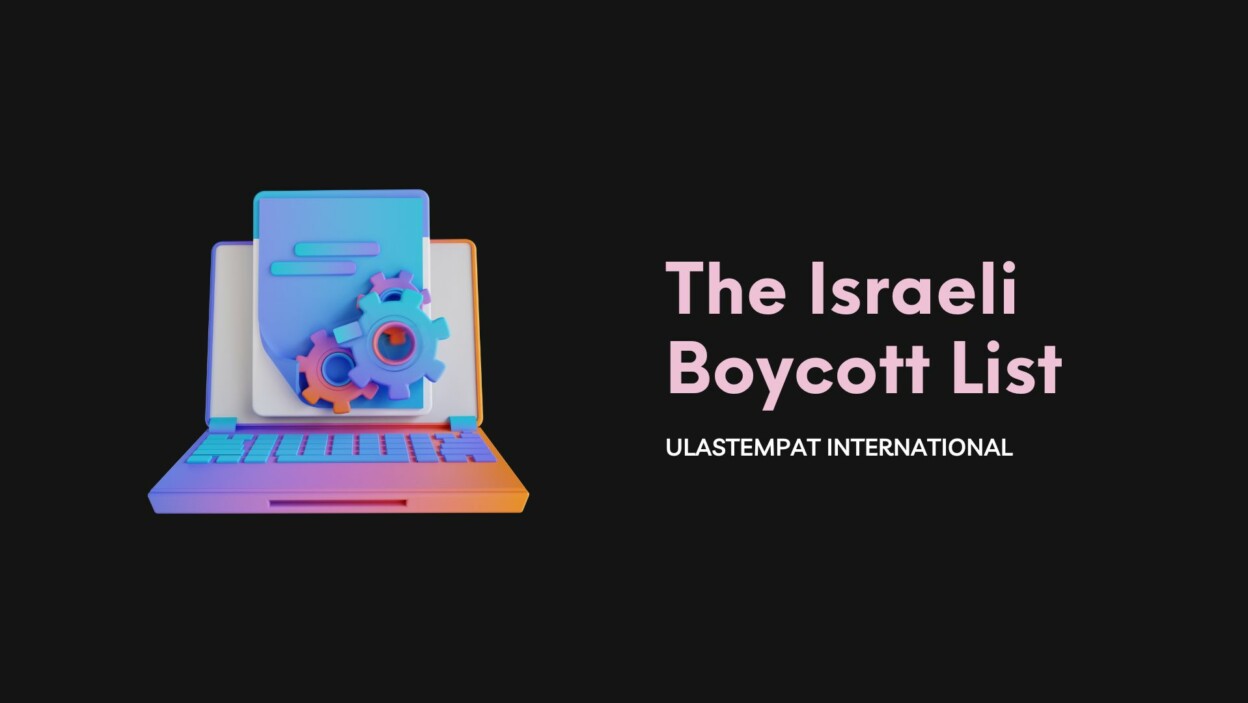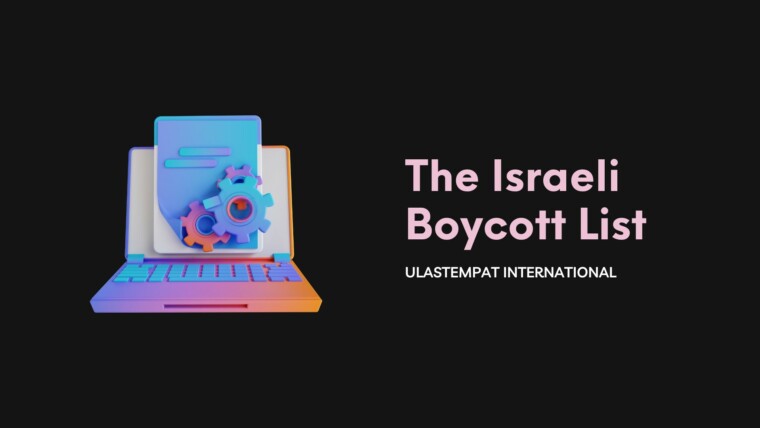The intersection of beauty, fashion, and global politics often becomes pronounced when brands find themselves entangled in complex geopolitical conflicts. One such contentious scenario unfolds with Ralph Lauren Fragrances, a collaboration between the revered fashion house Ralph Lauren and beauty giant L’Oreal.
This partnership’s ties to Israel’s occupation of Palestine have ignited a fervent debate among consumers, raising ethical concerns and prompting calls for boycotts.

Also See: The Chanel – Israel Connection Unraveled
Controversies and Consumer Divide
The collaboration with L’Oreal, deemed a ‘warm friend of Israel,’ encountered criticism following activities perceived as supportive of Israel’s occupation. Despite facing penalties and issuing apologies, the subsequent deepening of investments in Israel, including a factory in Occupied Palestine, intensified the backlash.
Pro-Palestinian advocates spearheaded the call for boycotting Ralph Lauren Fragrances, urging consumers to abstain from purchasing or promoting these products while discouraging employment with L’Oreal Groupe. This movement aimed to spotlight the ethical implications associated with supporting brands connected to the occupation.
Complexities and Nuances
Beyond the boycott movement, recent controversies involving individuals affiliated with L’Oreal have added layers to the ongoing debate. The case of Amena Khan, a model associated with L’Oreal, exemplifies this complexity. Khan had previously expressed pro-Palestinian sentiments and criticized the opposition in 2014.
Despite issuing an apology, her past comments led to her withdrawal from a L’Oreal Paris campaign. Meanwhile, Ralph Lauren, a significant brand under L’Oreal Paris, has a history of philanthropic contributions to the region. It’s noteworthy that Ralph Lauren himself has Jewish heritage, offering a nuanced perspective on the brand’s involvement in the Israeli-Palestinian conflict.
Explore More: Does Makeup Brands Backing Israeli? Learn the Details

The intersection of fashion, beauty, and global politics reflects the intricate web of ethical considerations in consumer choices. The divide among consumers—some advocating boycotts while others continue to support—underscores the evolving nature of conscientious consumerism.
The complexities embedded in these associations highlight the challenges of navigating global conflicts within the realm of consumer decisions, emphasizing the growing influence of ethical considerations in today’s consumer landscape.



Does Red Bull Support Israel? Decoding the Unraveled Connection
Companies That Support Israel: A List to Avoid
Fast Food Chains Aligned with Israel Support
Boycott List: Fashion Companies Supporting Israel You Should Be Aware Of
Does These Firearms Support Israel? Exploring the Unraveled Connection
Does These Tech Brands Support Israel? Decoding the Unraveled Connection
Does These Filmography Support Israel? Understanding the Intricate Ties
Does These Online Business Support Israel? Exploring the Unraveled Connection